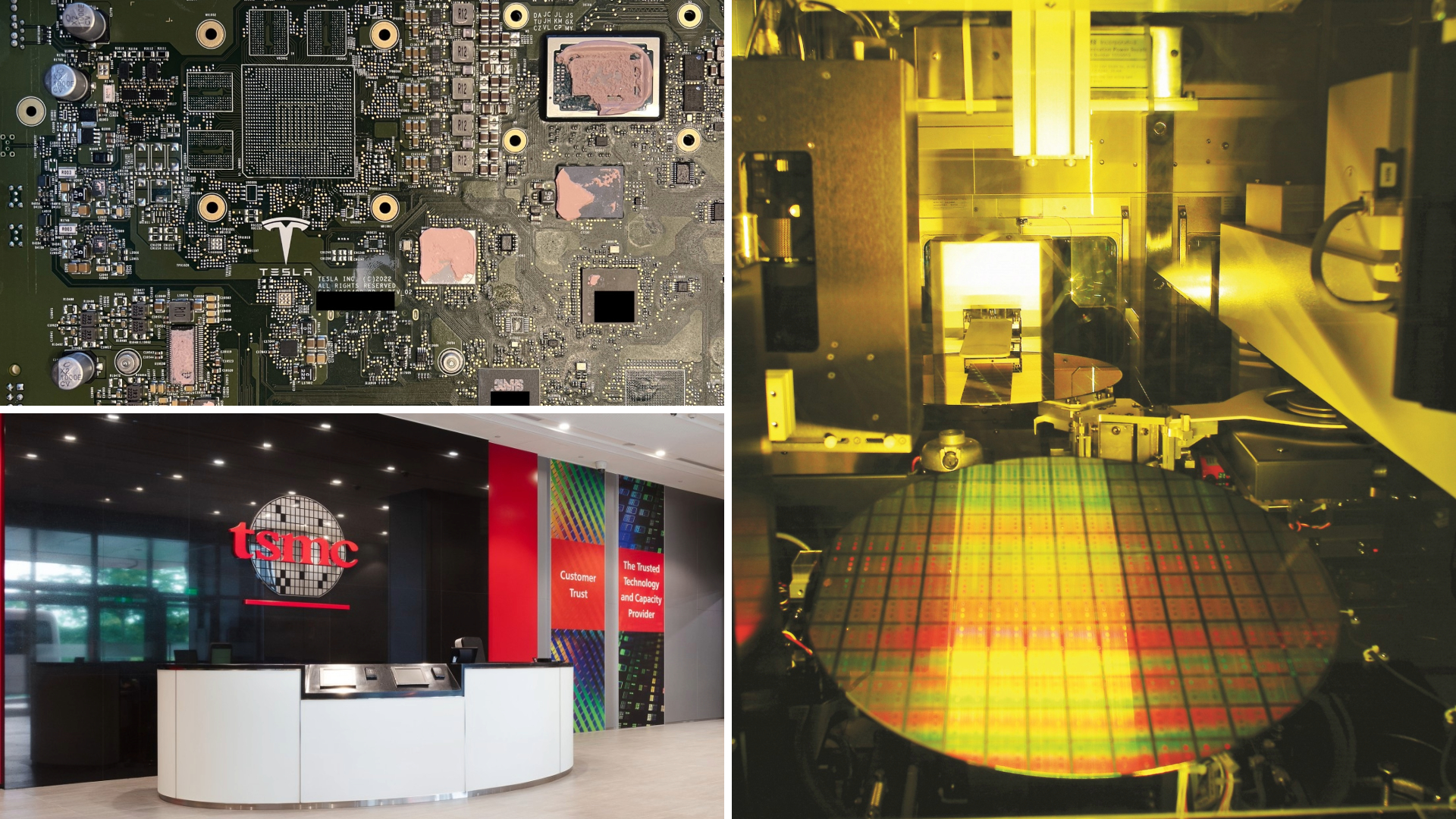Tesla launched the Hardware 4 Autopilot computer earlier this year, but it’s already working on the next-generation chips. The EV maker has been listed among the first companies to benefit from TSMC’s most advanced 3 nm lithography process, called N3P.
Tesla faired substantially better thanks to its vertically integrated manufacturing. The EV maker designs its own chips instead of using off-the-shelf components. This allowed it to consolidate many functions and controllers into a single chip die, thus needing far fewer of them. Controlling the hardware also allowed Tesla to control the software, which meant it could quickly repurpose different chips to offer various functionalities based on what was available at a particular moment.
The electronic chips are critical components, especially since there are only two companies that can manufacture the most advanced chips: Samsung and TSMC. These two giants duel for silicon supremacy, with the Taiwanese company having a slight edge over the Koreans. Tesla used both manufacturers at times. Early Autopilot chips were manufactured by Samsung using 14 nm lithography, which was later upgraded to a 7 nm process.
However, Tesla switched sides to TSMC with the Hardware 4 Autopilot chips, as the Taiwanese had a more advanced 5 nm technology. It could also deliver the quality and production scale Tesla needed for its current production needs. However, as the EV market leader is preparing the next-generation Autopilot, it will use both Samsung and TSMC chips in its computers. Clearly, Tesla anticipates a significant increase in vehicle production by the time HW5 arrives, which corresponds with the start of next-generation vehicle production.
In July, we wrote about the deal Tesla signed with Samsung to produce HW5 Autopilot chips using their 5 nm node. According to Korean media, the production was expected to start in 2026. At the time, Tesla had already signed a similar partnership with TSMC for the same purpose. Now we know more details about the TSMC contract.
The Taiwanese chip giant is currently using a more advanced 3 nm technology called N3E, which has attracted leading chip designers such as MediaTek, AMD, NVIDIA, Qualcomm, and Intel. TSMC will start mass production of its most advanced 3 nm technology, dubbed N3P, next summer, and Tesla has been listed among its customers.
Rumors suggest that Tesla plans to utilize the N3P process for its next-generation self-driving chips. It’s also apparent that Tesla placed a huge order, potentially turning it into one of TSMC’s most important clients. The updated N3P process provides a 5% improvement in performance, up to 10% reduction in power consumption, and a slight increase in chip density compared with N3E, which is in production today.
This article was originally published by a www.autoevolution.com . Read the Original article here. .


